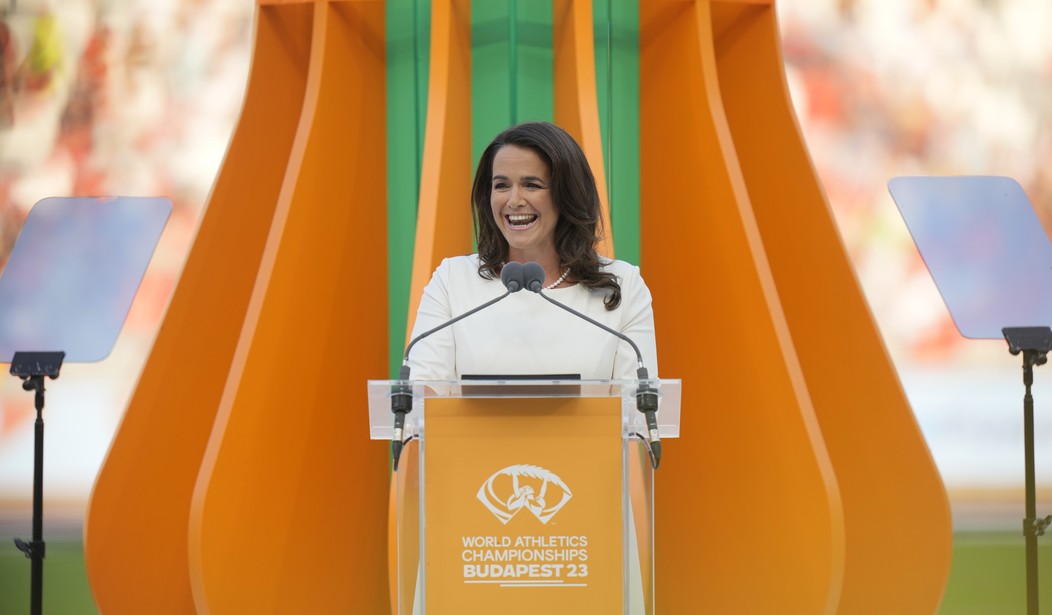In the U.S. and around the world, “equality” is no longer a neutral term. Instead, it has largely been co-opted by those with a very specific political agenda — one which its adherents will aggressively defend if anyone dares to cross them. This is especially true when it comes to women’s equality.
Take, for example, the backlash that immediately ensued when Hungarian President Katalin Novák — the first woman president of Hungary — was invited to address thousands of attendees at Women Deliver, a large international women’s conference held last month.
If this conference had really been about women’s equality, Novak’s role would have been celebrated for the opportunity it presented to advance women’s health and thriving on a global scale. But it wasn’t. Instead, so-called “women’s rights activists” lashed out in anger, aggressively attacking Novák for being “regressive and anti-woman.” And why? For daring to believe that equality for women should be measured by substantive gains for women – not adherence to ideological metrics.
Significantly, Novak wasn’t invited to speak at this conference by its organizers. Instead, she was invited by the government of Rwanda – the nation hosting the conference. A nation whose women face significant health and safety concerns, including a heightened risk of experiencing sexual violence, along with inadequate healthcare infrastructure to protect vulnerable mothers after birth, especially in the poorest parts of the country. There is roughly only one doctor per 10,000 people, leaving the life of both a mother and her child at risk without access to basic lifesaving resources., leaving the life of both a mother and her child at risk without access to basic lifesaving resources.
Yet despite these real challenges, organizations like Women Deliver have spent precious political capital pushing ideology and promoting the disturbing narrative that clouds the very definition of a woman, as it promotes access to abortion as the defining measure of their health care and their political status — and yes, their equality.
Recommended
The Biden administration is actually one of the greatest perpetrators of this dishonesty. In a statement released by the U.S. Department of Health and Human Services on the first anniversary of Roe being overturned by the U.S. Supreme Court, they renewed their commitment to “advance and protect sexual and reproductive health” for women in the United States and around the world. Lift off the thin veil of supposed pro-woman, pro-healthcare language and it’s evident what they’re actually committing to: The export of abortion ideology rather than the meaningful advance of women’s health.
But it’s worth taking time to seriously consider: What do statements full of euphemism and ideological brimstone do to alleviate the suffering of Rwandan women, or women anywhere, for that matter? Are vulnerable women to infer that their desperate health needs and right to equal political and economic opportunity mean little unless they fit within the “correct” ideological narrative that reduces it to a “right” to abortion?
Yet people who claim to care about women still enthusiastically embrace this parochial vision of health and equality when they should instead be fighting to provide access to healthcare that could save lives and empower all women to thrive.
Enough.
It’s time to reclaim the narrative of women’s equality – of women’s health. It’s time to build policy forums committed to centering on the lived experiences of women, wherever they live. It’s time to know and understand the real needs of women afflicted by illness, violence, injustice and poverty, and to address those hardships head-on. It’s time to commit to building a different future for women’s health.
The fact remains that women’s equality, like women’s health, is both holistic and practical. And anyone asserting that it is equivalent to a woman’s access to abortion is being as dishonestly reductive as they are being fundamentally anti-woman.
Women must not become ideological pawns, while progressive activists spar over abstractions. Suffering women don’t care about politics; they care about survival – particularly in the developing world.
And if we want to effect real equality for women and girls around the world, first we must work together to address their most basic needs and empower them as they actually need empowerment.
We might move to protect the 1 in 3 women around the world who are victims of violence. We could work to prevent the maternal fatalities that take the lives of over 800 women each day. But these priorities, and so many like them, can only be solved by prioritizing real health and real equality for women.
Dozens of countries, including Hungary, have committed to just that by signing the Geneva Consensus Declaration — a growing and thriving coalition of nations that have banded together to defend the delivery and real advancement of women and girls against false narratives that conflate ideological outcomes with women’s health.
But instead of supporting the efforts of this coalition, organizations like Women Deliver are standing in the way of progress by openly attacking and disrespecting the 36 nations that make up this coalition for not conforming to their radical agenda.
This Women's Equality Day, let’s celebrate the advancements women have made toward equality in this country and abroad. But let’s also commit to reclaim the narrative surrounding women's health equality, agreeing to make the main thing, the main thing again: Advancing the optimal health and thriving for women and girls everywhere — regardless of age, situation or political stripe.
Valerie Huber is the founder and president of the Institute for Women’s Health. She previously served as the U.S. Special Representative for Global Women’s Health. Follow her on Twitter @ValerieHuber20 and @

























Join the conversation as a VIP Member